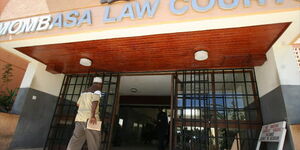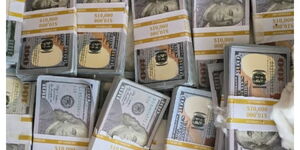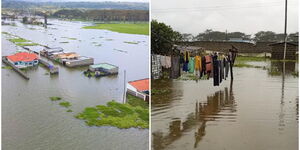Residents of Nairobi will further feel the pinch of the high cost of living as they will be forced to part with more to pay their water bills.
Speaking to Kenyans.co.ke on Thursday, July 7, Nairobi City Water & Sewerage Company confirmed plans to review upwards water tariffs in the county in August in line with its regular revisions.
The official explained that the imminent hike was in a bid to improve service delivery adding that it would allow public participation before making a final decision.
"Yes, it is true that we will be increasing the prices, but this is only to ensure that we are able to effectively deliver our core mandate. We will make public our proposed new rates so that Nairobi residents can make their contributions towards the same," he stated.
In a statement, the firm revealed that it had applied to the Water Services Regulatory Board (WASREB) to make the adjustments.
"NCWSC has applied to WASREB for a regular tariff review. It proposes an upward tariff review to enable the water utility to operate at full cost recovery and meet conditions necessary for improving service delivery," read the statement in part.
The current billing system has been in use since November 2015 following an approval on a request by Athi Water Services Board by WASREB in line with Sections 73 (1) and 73 (4) of the Water Act 2002.
Customers are billed differently depending on whether they are private entities or companies or state agencies. The charges also vary with the level of consumption.
For instance, the domestic and commercials were charged a flat rate of Ksh204 for the first 6,000 litres (six cubic metres). The next seven to 60 cubic metres will be levied Ksh53 per unit and any unit above will be billed at Ksh64 per unit.
On the other hand, government institutions such as schools were charged Ksh48 per cubic metre for the first 600 consumed, Ksh55 per unit for the next 600 and Ksh60 for every unit above 1,200 cubic metres.
The new prices will also affect several charges including sewerage fees, the cost of water deposit, meter connection and maintenance, water connection and private exhauster fees.
Kenyans have been grappling with high cost of living occasioned by both local and international factors. Maize flour, cooking oil and fuel top the list of commodities which have seen the greatest price jump.












